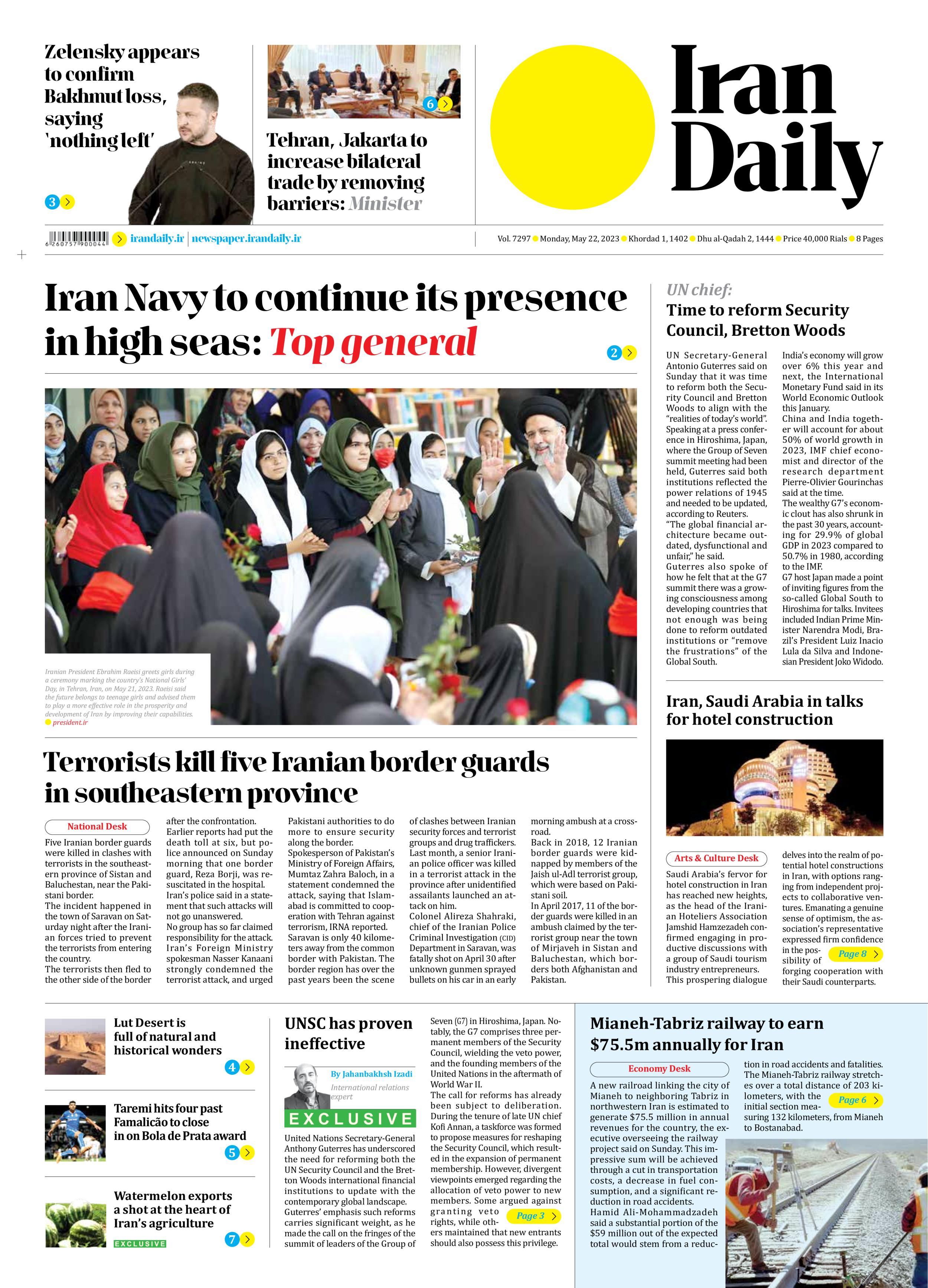
UNSC has proven ineffective
By Jahanbakhsh Izadi
International relations expert
United Nations Secretary-General Anthony Guterres has underscored the need for reforming both the UN Security Council and the Bretton Woods international financial institutions to update with the contemporary global landscape.
Guterres’ emphasis such reforms carries significant weight, as he made the call on the fringes of the summit of leaders of the Group of Seven (G7) in Hiroshima, Japan. Notably, the G7 comprises three permanent members of the Security Council, wielding the veto power, and the founding members of the United Nations in the aftermath of World War II.
The call for reforms has already been subject to deliberation. During the tenure of late UN chief Kofi Annan, a taskforce was formed to propose measures for reshaping the Security Council, which resulted in the expansion of permanent membership. However, divergent viewpoints emerged regarding the allocation of veto power to new members. Some argued against granting veto rights, while others maintained that new entrants should also possess this privilege.
The selection criteria for admitting new countries encompassed factors such as their international influence, robust economic capabilities, and due consideration for geographical representation. Consequently, nations including India, Japan, Germany, and Brazil were suggested as potential additions to the permanent membership, alongside the persistent demand of African nations for a permanent representative on the top world body. Nevertheless, these proposals have languished without implementation thus far.
Guterres has once again emphasized the pressing need for reforms, citing the backdrop of the ongoing conflict in Ukraine. Notably, a permanent member of the Security Council, equipped with the power of veto, has engaged in a war with another nation. The Ukraine conflict has profoundly hindered the efficacy of the Security Council, preventing it from fulfilling its primary responsibility of upholding international peace. Consequently, an additional predicament has compounded the existing flaws in the structure of the Security Council.
Hence, Guterres’ remarks encapsulate the prevalent demands within the international arena, highlighting his perception of the current international system as both unjust and ineffective.
A primary point of contention lies in the inherent unfairness of the Security Council, specifically concerning the veto power wielded by the five permanent members. While proponents of the veto right assert its legitimacy within the realm of international law, the root of the matter lies in the obvious elements of discrimination surrounding the composition of permanent members and the conflict of their respective interests. At times, conflicts arise between the self-interests of these nations and their global responsibilities, further underscoring the inherent unfairness and ineffectiveness of the Security Council within its existing structure.
An additional aspect contributing to this inefficiency traces back to the foundation of the post-World War II international system, which rests on the principles of political liberalism and being institution-oriented. Consequently, regardless of external variables, the very structure of the institution itself proves ineffective. This ineffectiveness extends beyond the confines of the Security Council and encompasses other United Nations bodies, including the Human Rights Council and the International Court of Justice.
Hence, Guterres astutely highlights the prolonged failure of the United Nations to adapt to the contemporary realities of the world, necessitating comprehensive reforms. The primary focal points of criticism revolve around the perceived unfairness and inefficiency plaguing UN institutions, particularly the Security Council, along with its financial system known as “Bretton Woods” or the dollar’s role as the foundation of global financial relations.







